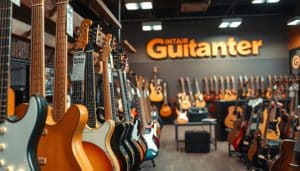Finding the perfect acoustic guitar to kickstart your musical journey can be a daunting task, but fret not! In this article, you will discover the ultimate guide to finding the best acoustic guitar starter for beginners. With so many options available, it’s crucial to select an instrument that suits your needs and budget. From exploring the different types of acoustic guitars to understanding the important features to consider, this article will equip you with all the knowledge and tips you need to make an informed decision. So, get ready to strum your way into the world of music with the best acoustic guitar that suits your style and sets you off on the right path to becoming a skilled guitarist!
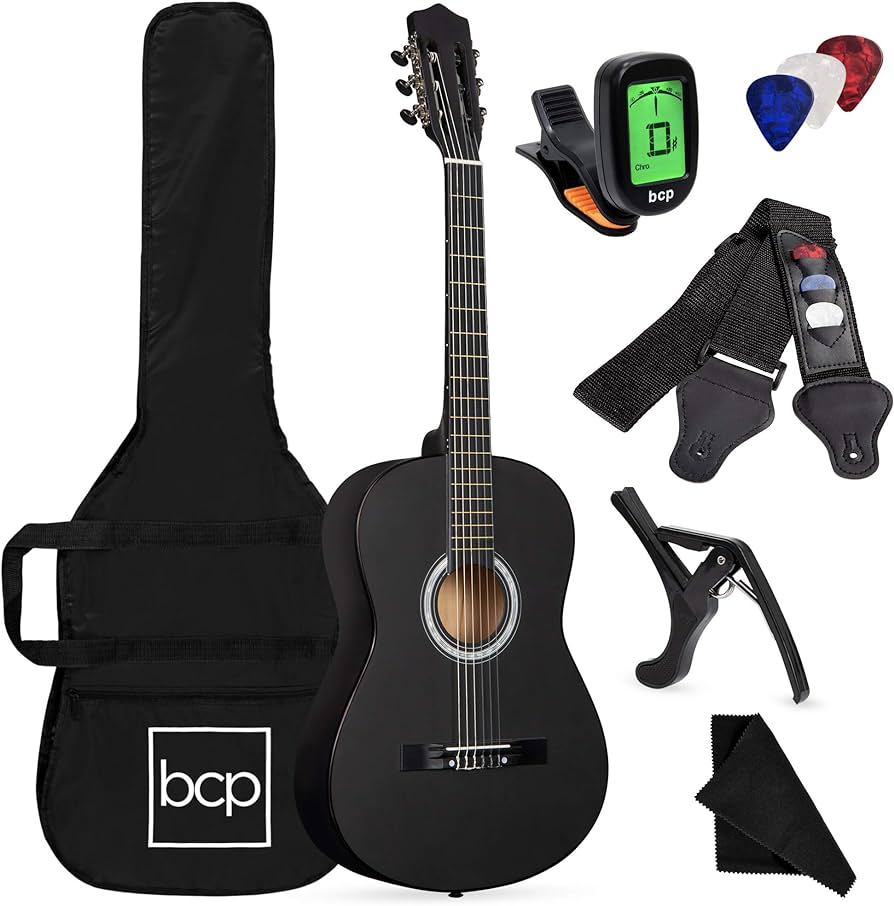
Choosing the Right Acoustic Guitar
Choosing the right acoustic guitar is an important decision, especially for beginners. With so many options available, it can be overwhelming to know where to start. However, by considering a few key factors, you can make a well-informed decision that suits your budget, preferences, and needs.
Consider your budget
One of the first things to consider when choosing an acoustic guitar is your budget. Acoustic guitars can range in price from affordable entry-level options to high-end models. By determining your budget beforehand, you can narrow down your choices and focus on guitars within your price range. Remember, it’s important to strike a balance between quality and affordability.
Decide on the type of acoustic guitar
Acoustic guitars come in different types, each offering its own unique sound and playing style. The two main types are steel-string acoustic guitars and classical guitars. Steel-string acoustic guitars are commonly used in popular music genres and have a brighter sound. On the other hand, classical guitars have nylon strings and produce a softer, mellower tone. Consider the type of music you want to play and choose the one that best suits your musical preferences.
Check the guitar’s playability
Another crucial factor to consider when choosing an acoustic guitar is its playability. Playability refers to how comfortable and easy it is to play the guitar. Factors that affect playability include the guitar’s neck shape, action (the distance between the strings and the fretboard), and overall ergonomics. It’s essential to try out different guitars and find one that feels comfortable in your hands and allows for easy and smooth playing.
Consider the guitar’s size
Acoustic guitars come in various sizes, ranging from small to jumbo. The size of the guitar can impact its tone and playability. Smaller-sized guitars, such as parlor or travel guitars, are great for beginners or players with smaller hands, as they offer a comfortable playing experience. Full-size guitars, on the other hand, produce a louder and fuller sound, making them suitable for players who prefer a robust and resonant tone. Consider your physical attributes and playing style when choosing the size of your acoustic guitar.
Top Acoustic Guitar Brands for Beginners
When it comes to acoustic guitars for beginners, there are several reputable brands that offer affordable and quality instruments. Here are some of the top acoustic guitar brands that are often recommended for beginners:
Yamaha
Yamaha is a well-known brand that produces high-quality acoustic guitars suitable for beginners. Their guitars are known for their excellent craftsmanship, playability, and affordability. Whether you choose an entry-level model like the Yamaha FG800 or opt for a higher-end option, Yamaha guitars consistently deliver a fantastic playing experience.
Fender
Fender is a legendary brand known for its electric guitars, but they also offer a range of acoustic guitars that are perfect for beginners. Fender guitars are known for their timeless designs, great sound, and durability. The Fender CD-60S is a popular choice for beginners due to its affordability and excellent build quality.
Epiphone
Epiphone, a sister brand of Gibson, offers a wide array of acoustic guitars that cater to beginners. Known for their affordability and versatility, Epiphone guitars provide great value for the price. The Epiphone DR-100 is a beginner-friendly acoustic guitar that offers a warm and balanced tone.
Taylor
While Taylor guitars are often associated with professional musicians, they also offer acoustic guitars suitable for beginners. Taylor guitars are renowned for their exceptional tone, playability, and craftsmanship. The Taylor Academy Series, such as the Taylor Academy 10, provides an excellent entry point for beginners who want a high-quality instrument.
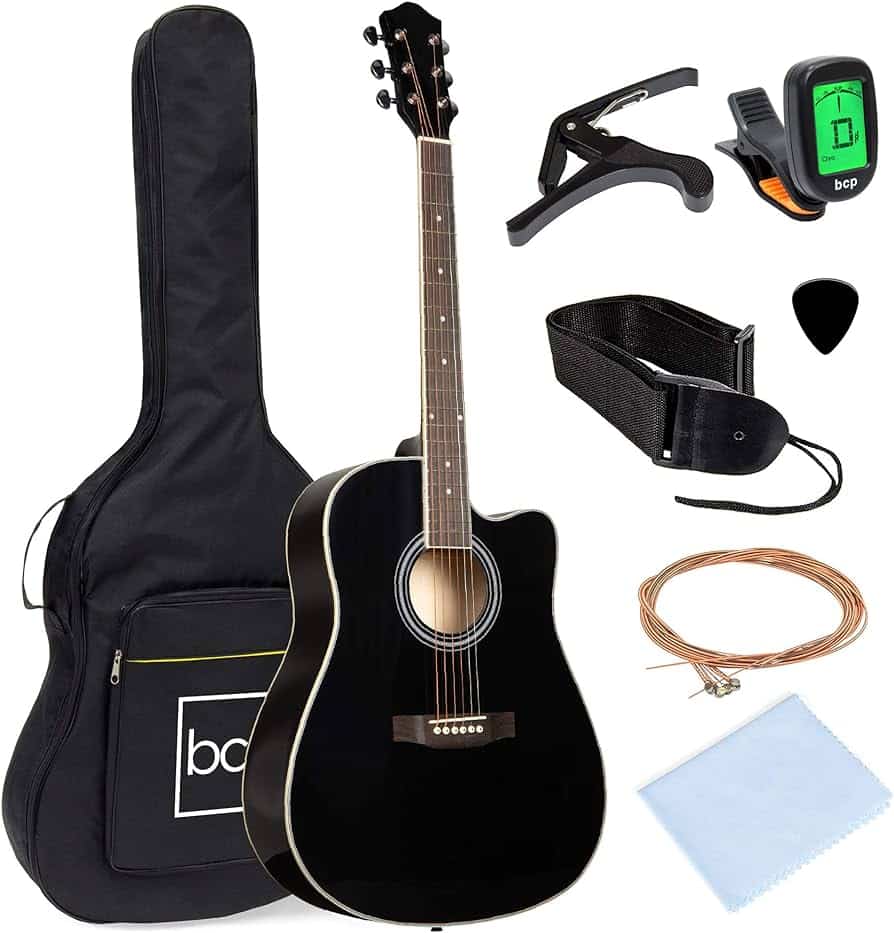
Best Budget Acoustic Guitars
If you’re on a tight budget but still want a quality acoustic guitar, there are some excellent options available. Here are three budget-friendly acoustic guitars that offer great value for the price:
Yamaha FG800
The Yamaha FG800 is an outstanding choice for beginners looking for an affordable but reliable acoustic guitar. It features a solid spruce top, which contributes to its rich and resonant sound. The FG800 also has a slim neck profile, making it comfortable to play for beginners.
Fender CD-60S
The Fender CD-60S is a popular budget-friendly acoustic guitar that delivers excellent playability and sound. It features a solid spruce top, mahogany back and sides, and a comfortable neck profile. The CD-60S also comes with a built-in tuner, making it a convenient choice for beginners.
Epiphone DR-100
The Epiphone DR-100 is an affordable acoustic guitar that offers great value for beginners. It features a select spruce top, mahogany back and sides, and a rosewood fingerboard. The DR-100 has a balanced tone and comfortable playability, making it an excellent choice for beginners on a budget.
Best Mid-Range Acoustic Guitars
If you’re willing to invest a bit more in your acoustic guitar, mid-range options provide a significant upgrade in terms of sound and craftsmanship. Here are three mid-range acoustic guitars that offer superior quality:
Yamaha FG830
Building upon the success of the FG800, the Yamaha FG830 offers enhanced features and improved sound quality. It features a solid spruce top and rosewood back and sides, which contribute to its warm and balanced tone. The FG830 also has a comfortable neck profile, making it a joy to play.
Fender FA-125CE
The Fender FA-125CE is a mid-range acoustic guitar that offers excellent value for the price. It features a laminated spruce top, mahogany back and sides, and a cutaway design for easy access to higher frets. The FA-125CE also comes with built-in electronics, allowing you to amplify your sound when needed.
Epiphone AJ-220S
The Epiphone AJ-220S is a mid-range acoustic guitar that offers exceptional tonal versatility. It features a solid Sitka spruce top, mahogany back and sides, and a mahogany neck. The AJ-220S has a robust and resonant sound, making it suitable for various playing styles and genres.
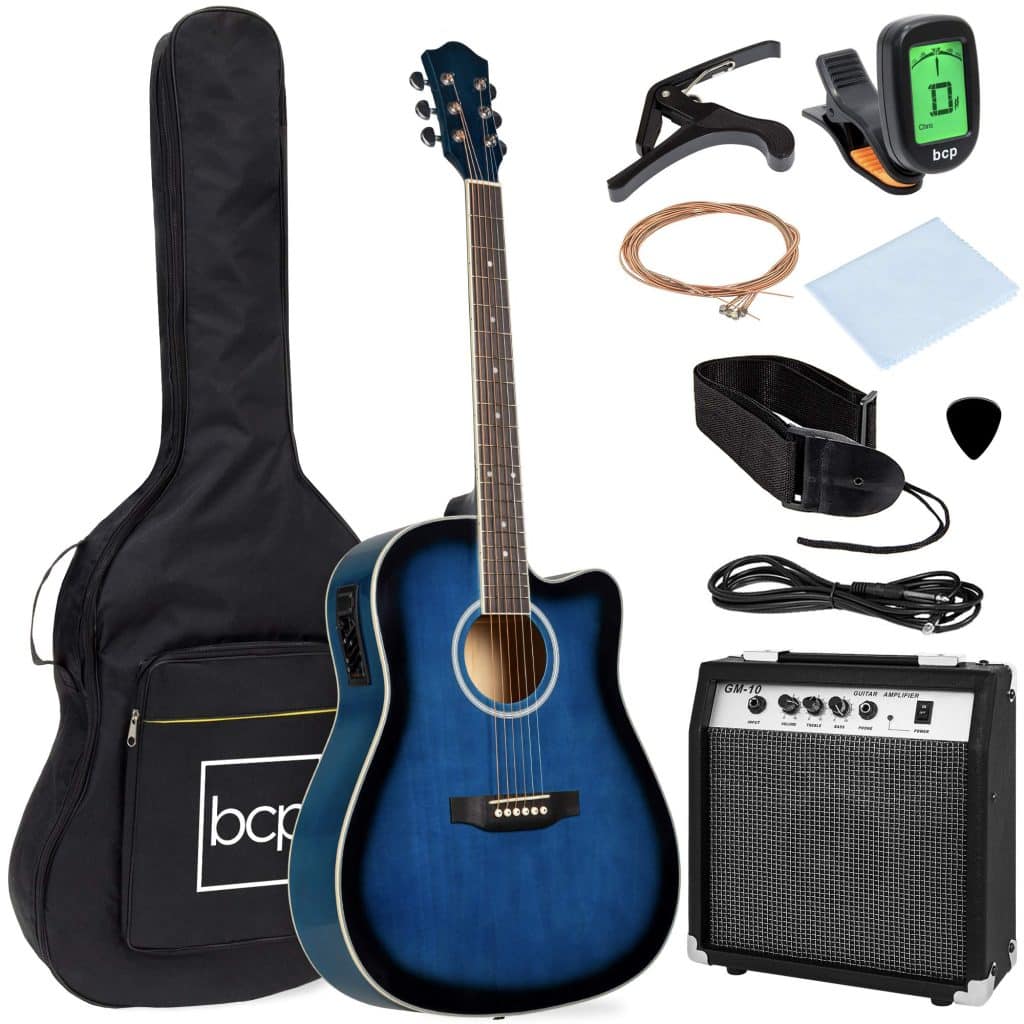
Best High-End Acoustic Guitars
For those seeking the best of the best, high-end acoustic guitars provide unparalleled craftsmanship and exquisite sound. Here are three high-end acoustic guitars that are known for their exceptional quality:
Taylor 214ce
The Taylor 214ce is a premium acoustic guitar that offers superior craftsmanship and stunning aesthetics. It features a solid Sitka spruce top, layered rosewood back and sides, and an ebony fingerboard. The 214ce produces a rich and dynamic sound, making it a favorite among professional musicians.
Martin LX1E
Martin is a legendary guitar brand renowned for its top-notch craftsmanship and tonal excellence. The Martin LX1E is a high-end acoustic guitar that features a solid Sitka spruce top, mahogany back and sides, and a modified low oval neck profile. The LX1E offers a balanced and resonant sound that is sure to impress any guitarist.
Gibson J-45
The Gibson J-45 is an iconic acoustic guitar that has been a favorite among musicians for decades. It features a solid Sitka spruce top, mahogany back and sides, and a comfortable round neck profile. The J-45 produces a rich and vintage tone that is well-suited for a wide range of musical styles.
Important Features to Consider
When choosing an acoustic guitar, there are several important features to consider that can greatly impact your playing experience and sound quality. Make sure to pay attention to the following:
Body type
Acoustic guitars come in different body shapes, such as dreadnought, concert, and parlor. Each body type produces a unique tone and offers varying levels of comfort. Consider the body type that best suits your playing style and tonal preferences.
Tonewood
The type of wood used for the guitar’s top, back, and sides contributes to its tone. Popular tonewoods include spruce, mahogany, rosewood, and maple. Each tonewood has its own characteristics, so it’s important to choose one that aligns with the sound you want to achieve.
Neck profile
The shape and thickness of the guitar’s neck can greatly impact its playability. Neck profiles vary from slim and fast to thick and chunky. Try out different neck profiles to find the one that feels most comfortable in your hands.
Electronics
If you plan on performing live or recording, consider opting for an acoustic guitar with built-in electronics. These guitars come with built-in pickups and preamp systems, allowing you to amplify your sound easily.
Bridge type
The bridge of an acoustic guitar affects its overall tone and sustain. Common bridge types include belly bridges and pin bridges. Research the different bridge types and consider how they may affect the sound of the guitar.
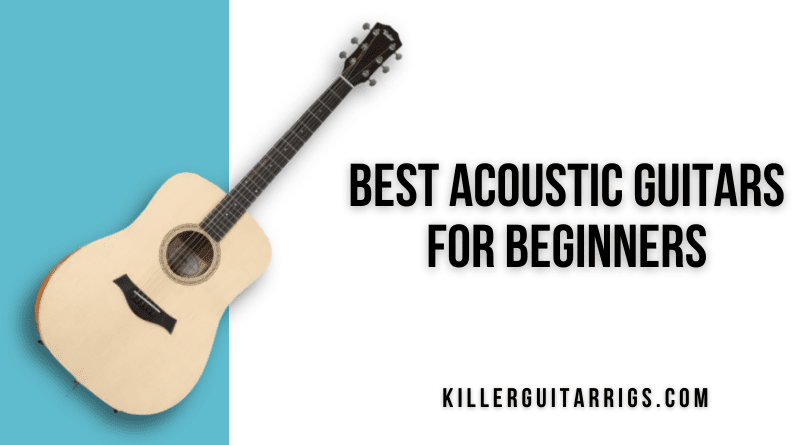
Acoustic-Electric vs. Acoustic Guitars
When choosing an acoustic guitar, you will come across two main types: acoustic-electric guitars and acoustic guitars. Each type has its pros and cons, so it’s important to understand their differences before making your decision.
Acoustic Guitars
Acoustic guitars are solely acoustic instruments, meaning they do not have any built-in electronics. They rely solely on their hollow body to produce sound. Acoustic guitars are great for beginners who primarily play at home or in small acoustic settings. They offer a pure and natural sound, and their simplicity makes them easy to use.
Acoustic-Electric Guitars
Acoustic-electric guitars, as the name suggests, feature built-in electronics that allow the guitar to be connected to an amplifier or PA system. This makes them suitable for live performances and recording. Acoustic-electric guitars offer versatility and the ability to shape and amplify your sound. However, they are typically more expensive than acoustic guitars due to the added electronics.
Pros and cons of each type
The choice between an acoustic guitar and an acoustic-electric guitar ultimately depends on your playing style and needs. Acoustic guitars are great for beginners who primarily focus on acoustic sound and do not require amplification. On the other hand, acoustic-electric guitars are ideal for those who want the option to amplify their sound and perform in larger venues.
Additional Accessories for Beginners
As a beginner, there are a few additional accessories that can greatly enhance your playing experience and protect your acoustic guitar. Here are some essential accessories to consider:
Guitar straps
A guitar strap is essential for playing while standing or performing live. It helps support the weight of the guitar and keeps it secure while you play. Look for a comfortable and adjustable guitar strap that suits your style.
Guitar cases
A good quality guitar case is crucial for protecting your acoustic guitar during transportation and storage. Whether you choose a hardshell case or a gig bag, make sure it provides proper padding and protection.
Tuners
Tuning your guitar is essential to ensure it produces accurate and pleasant sounds. A guitar tuner will help you achieve perfect pitch and keep your instrument sounding its best. There are various types of tuners available, from clip-on tuners to pedal tuners, so choose one that suits your preferences.
Guitar picks
Guitar picks are small pieces of plastic or other materials that are used to strike the strings of the guitar. They come in different thicknesses and shapes, allowing you to achieve different sounds and playing styles. Experiment with different picks to find the one that feels comfortable and produces the sound you desire.
Guitar stands
A guitar stand is a practical accessory that allows you to store and display your acoustic guitar easily. By keeping your guitar on a stand, you can ensure it stays safe from accidental damage and readily accessible for practice or impromptu jam sessions.
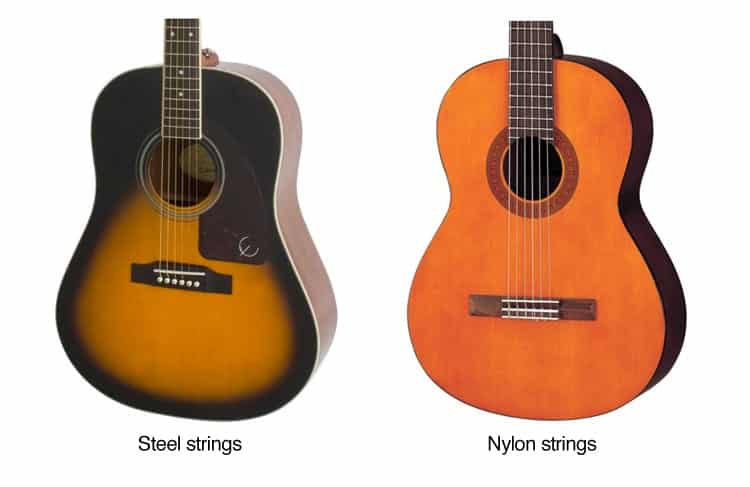
Where to Buy Acoustic Guitars
Now that you have a better understanding of acoustic guitars and the essential factors to consider, you may be wondering where you can buy one. Here are a few popular options:
Local music stores
Visiting a local music store is a great way to try out and compare different acoustic guitars in person. You can seek advice from knowledgeable staff, ask questions, and get a feel for the guitars before making your decision. Local music stores often offer a wide selection of acoustic guitars and provide hands-on assistance.
Online marketplaces
Online marketplaces such as Amazon, Guitar Center, and Sweetwater offer a wide selection of acoustic guitars from various brands. Shopping online allows you to compare prices, read reviews, and easily browse through different models and styles. However, keep in mind that you won’t be able to physically try out the guitar before purchasing.
Second-hand markets
If you’re on a tight budget or looking for a vintage instrument, second-hand markets such as eBay, Reverb, and Craigslist can be great options. These platforms offer a wide range of used acoustic guitars at different price points. Make sure to research the seller and ask detailed questions about the guitar’s condition before making a purchase.
In conclusion, choosing the right acoustic guitar is a personal and exciting journey. By considering your budget, determining the type of acoustic guitar, checking the playability and size, and exploring reputable brands, you can find the perfect instrument to kickstart your musical journey. Remember to also consider important features such as body type, tonewood, neck profile, electronics, and bridge type. Finally, don’t forget to invest in essential accessories and explore different buying options to find the acoustic guitar that meets your needs and preferences. Happy strumming!



